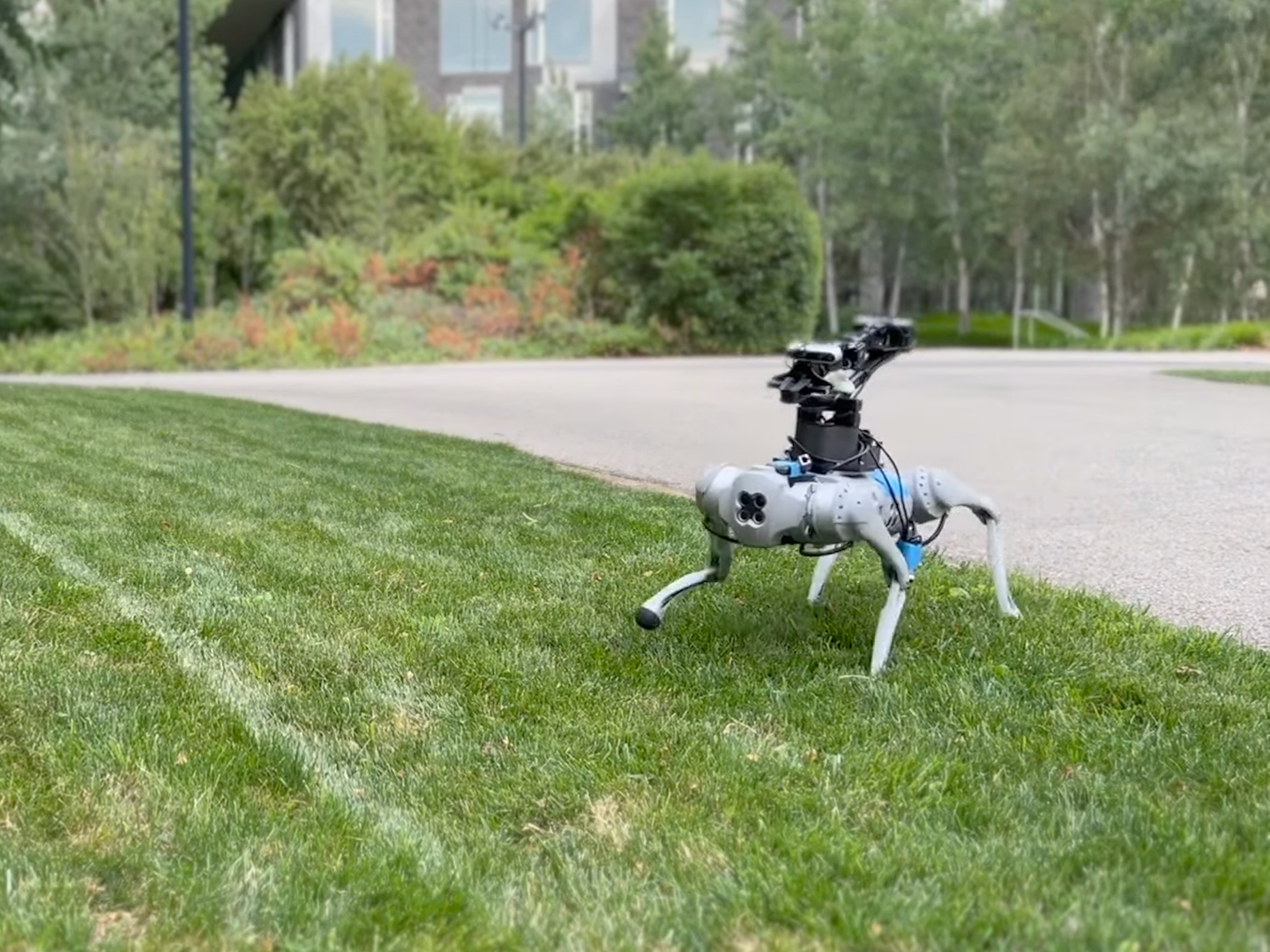AI can teach robot dogs tricks for cheap
Multiple rungs of AI training systems may lower the time-consuming, pricey hurdles for future robots.

Two things we know to be facts regarding mobile robots like Boston Dynamics’ Spot—they are definitely here to stay, but at least for the time being, they are extremely pricey to produce. According to a new report courtesy of The New Scientist, however, that cost could soon drop precipitously thanks to training regimen overseen by multiple AI “coaches.” Judging from the video clip, we might as well start rolling out the red carpet—they certainly will have no trouble walking a straight line down one, anyway.
Thanks to a team of researchers at Carnegie Mellon University in Pennsylvania, a four-legged, doglike robot featuring an arm attachment recently managed to master complex maneuvers and multiple tasks overseen via a combination of human trainers and AI systems. Using reinforcement learning methods in both real-world and simulated environments, the developers first trained an AI to control the robot’s four legs independently from its arm extension, the synced the two systems into one walking, grabbing machine.
[Related: The Boston Dynamics robots are surprisingly good dancers.]

Additionally, the team used a simulation-taught AI to then “coach” a similar AI what it learned, which would next attempt to mimic its tutor. This second AI was then applied to the four-legged robot for physical training while only relying on information gleaned through onboard cameras and sensors.
[Related: Boston Dynamics gave its dog-like robot a charging dock.]
The results were both impressive and uncanny, as the above video showcases. Among other feats, “the AI learned on its own to bend and stretch certain legs to help maximize the reach of the robot’s arm as it tossed cups into a garbage bin or wiped a whiteboard with an eraser,” per The New Scientist. For now, the miniature prototype doesn’t appear strong enough to toss anything bigger than small dinnerware into the garbage bin, so there’s no need to fear being picked up and chucked around by the AI-trained creature.
Usually, this kind of synchronization and programming costs a lot of time and money, but researchers’ breakthroughs managed to produce their own quadruped robot for the relatively low price of $6,300—roughly just one-tenth the cost of a Spot from Boston Dynamics. The research team hopes its novel workarounds will make both future four- and two-legged assistant robots much more affordable for general consumers. Regardless of cost, robots from some of the most notable tech companies, like Tesla’s recent Optimus prototype, could likely learn a thing or two from this little guy and its AI coaches.
